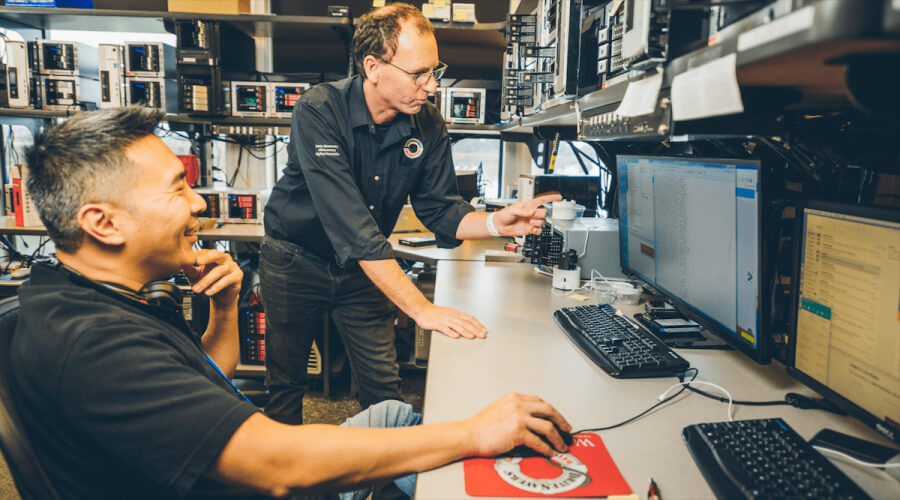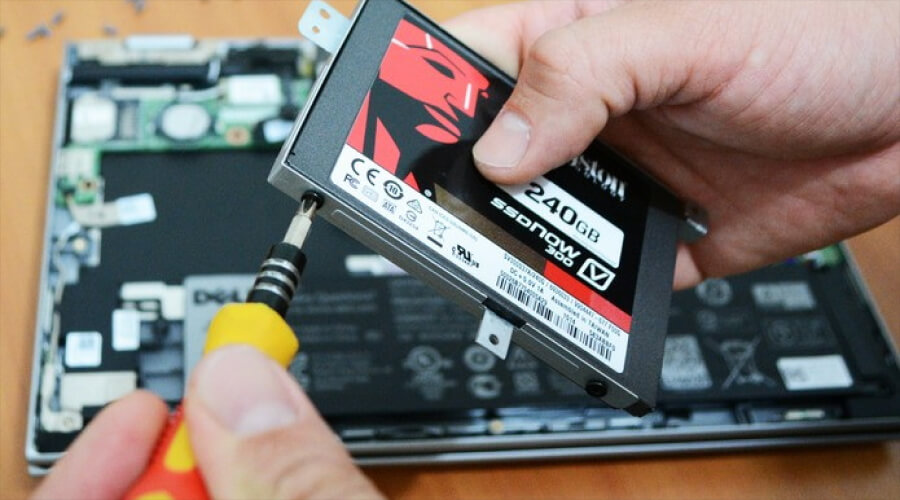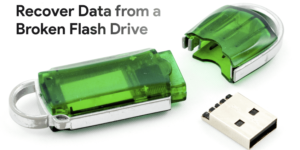
Everything that is running on a computer is due to pre-installed data. The algorithms of saved data direct the computer to perform. However, losing data due to hardware or software malfunctioning, natural disasters, accidental deletion, or virus infection is common.
Thanks to the services of data recovery specialists, companies can retrieve their data in a timely fashion (even if it has been lost from the cloud storage computing services). Yes, data recovery specialists can recover your data even when it is gone from cloud storage. This simply implies that data recovery experts play a crucial role in this digital age.
So, if you want to become a certified data recovery specialist, you should have full-fledged knowledge of how to diagnose, detect, and repair logical failures. Besides this, you should possess many skills, including non-contact hard disk replacement, physical damage recovery, and data cybersecurity.
But worry not! We have got you covered in this post. Explore this comprehensive guide to learn the ins and outs of the job of a data recovery specialist. Read on!
Who is a Data Recovery Specialist?
A data recovery specialist, as the name says, is an engineer who helps companies retrieve lost data. They are experts in retrieving lost, corrupted, or inaccessible data from different storage devices, including hard drives, flash media, RAID (Redundant Array of Independent Disks) systems, and USB drives.
They employ engineering best practices to fix storage devices that have been affected by physical damage, logical failure, or malware infection. This way, they recover crucial information from the lost or damaged dataset and ensure data integrity.
Let’s now understand their roles and responsibilities in detail. Here we go…
Data Recovery Specialist Roles and Responsibilities
Data plays a crucial tole in this digital realm. The success of any company relies heavily on its data management. Undoubtedly, the loss of their data can cause them humungous setbacks. In such a situation, data recovery specialists come in for rescue.
Their job comes with many roles and responsibilities, along with a high salary package. Before you dive into the world of data recovery learning, it is crucial to become familiar with their roles and responsibilities.
So, take a look at the following discussion to understand the roles and responsibilities of professional data recovery specialists…
1. Identify the Lost or Damaged Data
A DRS identifies the computer data that is hidden, compromised, or lost to retrieve. Everything around is unpredictable. You Nobody knowns what is going to happen next. You can you’re your data for any reason.
As a result, the need for data recovery engineers has increased significantly due to various causes such as deletion, reformatting, physical damage, corruption, water or fire incidents, viruses, and more.
Also Read: Is There a Way to Recover Data from a Broken Flash Drive?
2. Recover Data and Files

A certified DRS implements methods, such as software-based recovery and hardware-based recovery. Furthermore, they also employ specialized software equipment and cleanroom environments to locate data and files in disabled devices.
3. Ensure Data Integrity
Data recovery specialists are responsible for maintaining the data integrity of the database in its entirety. They ensure the company’s data is backed up and can be retrieved securely. This way, they protect crucial data from unauthorized access.
4. Prepare a Disaster Recovery Plan

A disaster recovery plan includes standardized instructions that guide how an organization should respond in case of data loss. This unprecedented situation can crop up due to power outages, cyberattacks, and natural disasters.
To overcome this situation, the data recovery specialist performs low-level forensics on multiple computer devices for a successful disaster recovery plan.
5. Hard Drive Logic Board Replacements and Reverse Imaging
The professional DRS must be efficient in using various file formatting tools. They must be able to deal with the damaged components of the hard disk, its complete replacement, and repair.
They should utilize head replacement tools to change heads on hard disks to ensure a non-contact head replacement. It assists them in ensuring that the hard disc is once again in a usable condition for data retrieval.
Thereafter, they perform reverse imaging and reverse scanning to enable data reading in real time from the end to the start of the hard drive.
6. Restoring Data Using Shadow Copy on Vistas
Another responsibility that a data recovery specialist undertake is to restore data using shadow copy on Vistas. A certified data recovery specialist restores data from Windows Vistas by using volume shadow file copies.
Simply put, a shadow file copy is a Microsoft Windows service that creates backup copies or snapshots of computer files.
7. Address Firmware Corruption

An efficient DRS addresses firmware issues occur as a result of power outages, improper software updates, misconfiguration of the BIOS settings, and hardware failures.
They ensure data recovery before diving into troubleshooting the error. Additionally, they safeguard SID (security identifier) protected folders in the event of BIOS or firmware corruption.
8. Resolve Issues in Linux Bootable Disk
A data recovery specialist must be able to resolve the issues cropping up in the Linux bootable disk. By formatting the USB drive and freeing up disc space they efficiently recover the Linux Data and Mac OS X Data.
9. Clear Password in Password Protected Hard Drive
In case an individual forgets the password of the hard drive, unlocking it becomes difficult. You cannot unlock hard drives due to which accessing crucial data information also becomes a challenge.
In this scenario, a data recovery scientist comes for rescue. They employ engineering knowledge to break passwords on a password-protected hard drive and make is accessible.
10. Update the Hard Drive Microcodes
A professional DRS ensures the hard disk microcode updates to prevent issues of corrupted or lost data in the future. This update includes logic changes to minimize the potential data loss condition.
11. Diagnose Service Area of a Hard Disk Drive
DRS knows how to take charge or diagnose the service area of a hard disk drive. They employ the Hex Editor to review data structures. This way, they ensure RAID array, RAID 0, and RAID 5 solid-state data recovery.
12. Repair the Actuator of a Hard Drive
Professional data recovery scientists also diagnose physically damaged hard drive to repair a malfunctioning actuator. By performing regular inspections, they take charge of the replacement or repair of the single or multi-platter components. This way, they ensure the integrity and functionality of actuators for optimal data performance.
13. Collaborate with Technical Team Members

Although data recovery engineers analyze, diagnose, and troubleshoot computer hardware issues, they should collaborate with technical team members to detect security issues. It is their responsibility to have a proactive approach to address potential malware issues.
13. Hard-Disk P-List and G-List Recovery
Last but not least, data recovery specialists are also responsible for Hard-Disk P-List and G-List recovery. Addressing hard disk P-List and G-List recovery is one of the most important responsibilities of data recovery scientists. P-List and G-List are the bad sectors, marked as defective during factory resetting and the drive’s life cycle.
Well, it is crucial to know that there are different types of data recovery scientists. It is crucial to be aware of these types in order to pick the right path. Read the upcoming section to have knowledge about the different DRS types. Here we go…
Different Types of Data Recovery Specialists
Let’s now know about the different types of data recovery specialists and understand the roles that they play in those profiles. Take a look…
1. Computer Forensic Expert
They specialize in collecting, examining, and preserving digital evidence during hard disc drive investigations. For this, they do the data recovery of the damaged or deleted data while ensuring the entire system’s integrity.
2. RAID Data Recovery Specialists
Another role includes RAID data recovery specialists. They are experts in employing RAID reconstruction tools for logical data retrieval. They employ a specific technique called data carving in order to extract raw data from storage without taking any support from the file system or metadata.
3. On-Site Data Recovery Specialists

On-site engineers, as the name suggests are the ones who visit different sites for urgent data recovery or hard disk malfunctioning issues. They specialize in diagnosing hardware and software issues, performing complex data recovery operations, and ensuring minimal disruption to the client’s business operations. They are particularly valuable in setting where sensitive data cannot leave the premises or when immediate action is required due to critical system failures.
4. Natural Disaster Data Recovery Specialists
Another DRS role includes Natural Disaster Data Recovery Specialist. They particularly specialize in offering data retrieving emergency services if the data is lost or damaged due to natural disasters, such as earthquakes, fire outbreaks, and so on.
5. Cloud Computing Data Recovery Expert
They are experts in restoring cloud storage data that has been lost, corrupted, or become inaccessible. These specialists perform a diagnostic analysis, pre-configuration, device cloning or maintenance, and data extracting.
6. SSD Data Recovery Engineers

Next is SSD data recovery engineer. They specialize in retrieving lost, corrupted, or inaccessible data from solid-state drives (SSDs). Although it is difficult to recover data from a solid-state drive (SSD), a certified data recovery specialist can employ techniques, such as complex software algorithms and firmware analysis.
SSD data recovery engineers possess deep knowledge of NAND flash memory, firmware, and controller technologies, which helps them recover data even from damaged or malfunctioning SSDs. Their role involves diagnosing the extent of data loss, employing specialized tools and techniques to extract data, and ensuring the integrity and security of the recovered information.
7. Flash Media Data Recovery Service Providers
Then, there are some professionals who treat all types of flash media failures, including bad sectors, broken USB connectors, and more. These specialists specialize in retrieving lost or corrupted data from flash-based storage devices, such as USB drives, SD cards, and compact flash cards.
Their services become imperative when your data is deleted accidentally, files are corrupted, or the flash media is physically damaged. These specialists use advanced tools and techniques to recover data by bypassing or repairing damaged components and extracting the information directly from the flash memory chips.
Qualifications Required to Become Data Recovery Specialist
Do you want to make safe and secure database system management your career? If yes, then here are the qualifications required to become a data recovery scientist. Take a look…
- The candidate should possess a bachelor’s degree in computer science, information security, information technology, telecommunications, or any other related field
- Alternatively, a master’s degree with a specialization in hard disk drive replacement and data recovery is highly preferred
- Furthermore, he should possess a valid certification to handle operating systems, such as Windows, LINUX, macOS X, and UNIX.
Skills Required To Become Data Recovery Scientist
Besides educational qualifications, the employer considers your practical learning skills to ensure optimal data recovery. Look at the following skills that are highly preferable to becoming a professional data recovery specialist:
- The candidate should be an expert in diagnosing the physical recovery of hard drives. They should know how to compare the samples with performing or live drives to identify the underlying fault
- The data recovery engineer should know how to perform logical recovery on common operating systems such as Windows, macOS, LINUX, and others
- The professional should be able to perform low perform forensics on multiple computer hardware storage
- They should be well-versed in extracting, inspecting, and repairing raw data, even in case of malware infections
- Furthermore, they should have basic to advanced knowledge of hard disk drives along with software and hardware troubleshooting methods.
- They should be able to use advanced tools specifically designed for retrieving data in different settings, including cloud storage.
Salary
The average salary of a data recovery specialist is between $60,128 and 65,408 per year in the US. The average hourly pay for a data recovery specialist is $33, with a range from $9.86 to $57.45.
Working Hours
The work schedule of a data recovery scientist is conventional. Most data recovery scientists typically work at least 40 hours a week. They often work on a standard working schedule from 8 pm to 4 pm and 9 pm to 5 pm. However, there can be some variations in timings depending on the geographical location and client’s requirements.
It is worth noting that overtime is not common among them. More often than not, they have flexible working hours. However, if there is an emergency situation, then they may have to work extra hours.
The Bottom Line
So, this is all about the roles and responsibilities of data recovery specialists. Data recovery scientists are one of the lucrative profiles today. This is because almost every company gathers a humungous amount of data. There is nothing without data in this digital age. Ensuring the safety and security of data is of utmost importance for companies. Unfortunately, there has been an increase in the number of incidents involving data loss and data theft.
In such a situation, Data Recovery Scientists are there to come to the rescue. The significance of data security and safety has escalated the demand for data recovery specialists. If you are planning to build a career in this field, then it is crucial to be aware of the roles and responsibilities of DRS.
Also, you should have a keen eye for attention to detail. Besides this, you should have a passion for extensive research and bringing innovative solutions. The faster and smarter you are in resolving hard disk failures and data retrieval, the more opportunities you will get to grow.
Thanks for reading! Hopefully, this article has been informative for you. Stay tuned for more such insightful articles!






